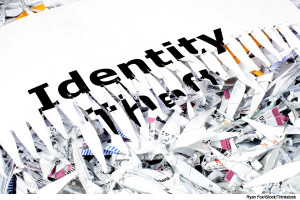 |
| Click here for full image |
October is normally associated with Halloween and ghosts and goblins, but for the last 10 years it’s been National Cyber Security Awareness month.
As evidenced by the rising number of successful attacks against high-profile targets, cyber crime is on the rise.
With that in mind, here are OpenDNS’ top 10 cyber security tips and tricks to protect yourself.
- Realize that you are an attractive target to hackers. Don’t ever say “it won’t happen to me.”
- Practice good password management. Use a strong mix of characters, and don’t use the same password for multiple sites. Don’t share your password with others, don’t write it down, and definitely don’t write it on a sticky note attached to your monitor.
- Never leave your devices unattended. Take your tablet or phone with you. If you need to leave your computer for any length of time ̶ no matter how short ̶ lock it up so no one can use it while you’re gone. If you keep sensitive information on a flash drive or external hard drive, make sure to lock it up as well.
- Always be careful when clicking on attachments or links in email. If it’s unexpected or suspicious for any reason, don’t click on it. Double check the URL of the website the link takes you to: bad actors will often take advantage of spelling mistakes to direct you to a harmful domain. Think you can spot a phony website? Try the OpenDNS phishing quiz.
- Sensitive browsing, such as banking or shopping, should be done only on a device that belongs to you, on a network that you trust. Whether it’s a friend’s phone, a public computer or a cafe’s free WiFi ̶ your data could be copied or stolen.
- Back up your data regularly, and make sure your anti-virus software is always up to date.
- Be conscientious of what you plug in to your computer. Malware can be spread through infected flash drives, external hard drives and even smartphones.
- Watch what you’re sharing on social networks. Criminals can befriend you and easily gain access to a shocking amount of information ̶ where you go to school, where you work, when you’re on vacation ̶ that could help them gain access to more valuable data.
- Offline, be wary of social engineering, where someone attempts to gain information from you through manipulation. If someone calls or emails you asking for sensitive information, it’s OK to say no. You can always call the company directly to verify credentials before giving out any information.
- Be sure to monitor your accounts for any suspicious activity. If you see something unfamiliar, it could be a sign that you’ve been compromised
Cyber security attacks can be scary, but the more safeguards the better. Make cyber security a habit, not just in October. For more information on how to practice cyber security during National Cyber Security Awareness Month and throughout the year, visit Stop.Think.Connect.
Cyber insurance coverage is available to protect you or your business from the financial consequences of cyber crime; contact your local independent insurance agent for information appropriate for your state and situation.

